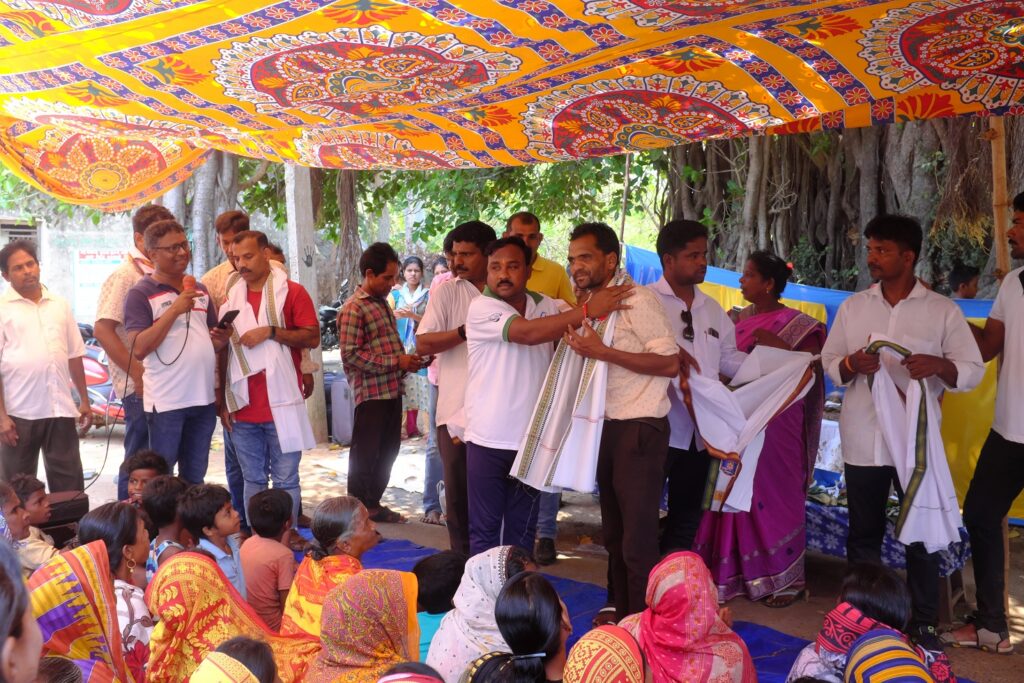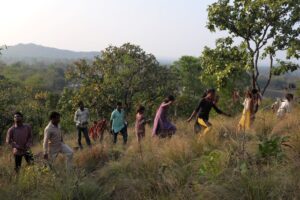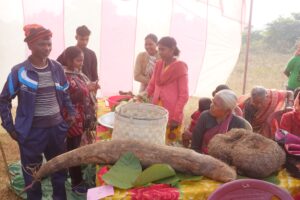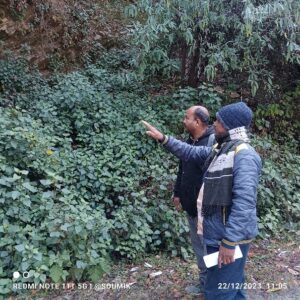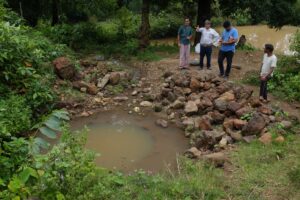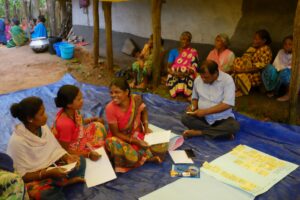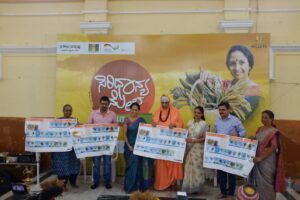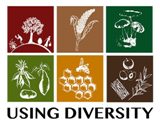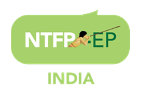After a gap of three years due to the Pandemic the Using Diversity Network came together for an annual meeting in the vicinity of Chilika Lake, Odisha. This year the meeting also brought together representatives of partner organisations involved in the implementation of the Habitat Rights project some of whom are also engaged with the implementation of the Using Diversity project. The event was hosted by Regional Centre for Development Cooperation (RCDC) who is implementing the Habitat Rights project with 4 communities in Odisha. Since 1993, RCDC has been leading work focused on natural resource management and livelihoods for the development of Odisha.
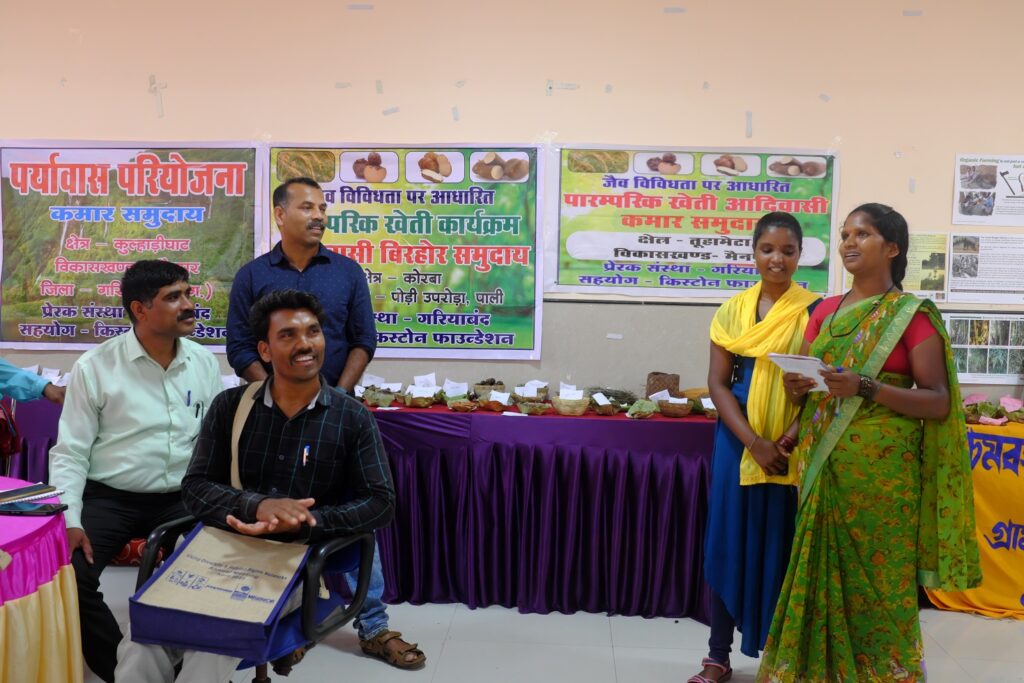
The meeting involved around 60 participants representing 9 organisations who are currently engaging with 18 PVTGs and around 8 other Adivasi communities. Fellows and coordinators from different field areas shared updates from the implementation of the Using Diversity and Habitat Rights projects in the last 2 to 3 years. One of the highlights of the event was the display of a variety of seeds, wild food, posters, and associated literature from different project areas. An exchange of knowledge, seeds and wild food between different groups was also facilitated. The Nilambur group got a variety of tubers from Surja Paharia from Sundar Pahari, Jharkhand and Chandran from Pillur was happy to provide a sample of black turmeric to Fatik Hembrum from PBKSKS Purulia.
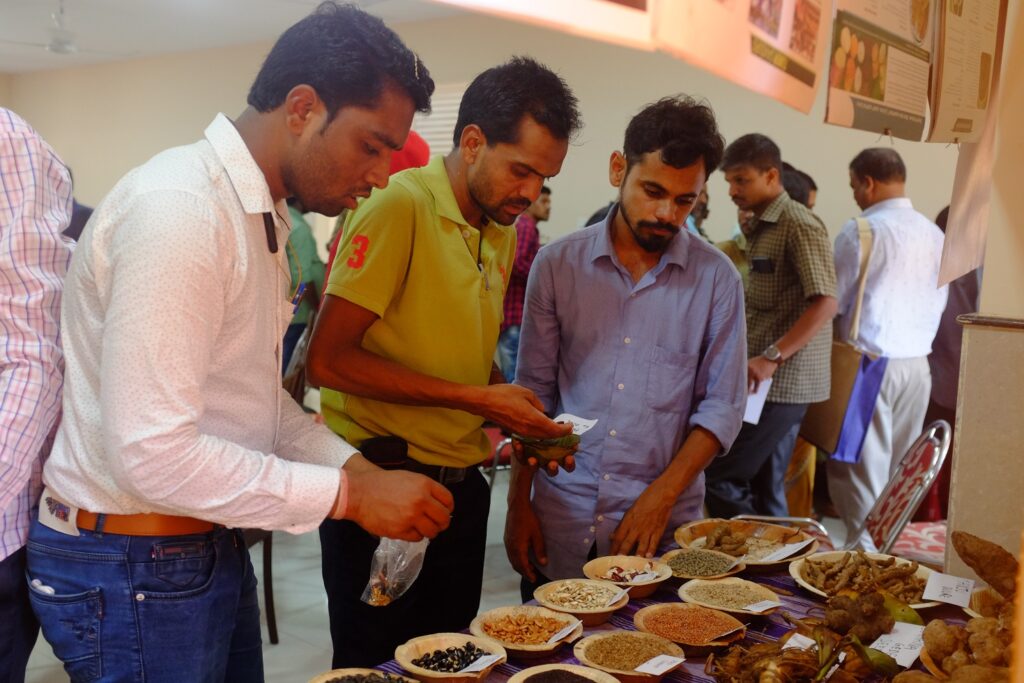
Three sessions on Habitat Rights helped participants improve their understanding of this provision of the Forest Rights Act (FRA) and also explore solutions for various challenges they are facing with respect to the implementation of FRA and Habitat Rights in particular in their areas. In the course of these sessions Naresh Biswas provided insights into the functioning of and developments concerning the Expert Committee on Habitat Rights of which he is a member. Pravat Kumar Mishra from RCDC and Dr. Kishore Moghe from GSMT, Yevatmal, Maharashtra shared their experiences with the implementation of FRA and Habitat Rights in their areas. Two panel discussions chaired by Naresh Biwas, Pravat Kumar Mishra and Dr. Kishore Moghe addressed a variety of questions and issues regarding Habitat Rights raised by participants working in different parts of India.
A number of special sessions on specific topics or issues were also held. Ramgulal Sinha shared PRERAK’s experiences with Community Forest Rights (CFR) in Chhattisgarh. He shared that several communities who they have supported in receiving CFR continue to face multiple challenges, for instance in Raigarh district mining waste has been dumped in many CFR areas making it extremely difficult for the concerned local communities to effectively use these areas. Soumik Banerjee facilitated a discussion on the threats posed by the Indian Government’s plans to fortify its rice supply for the food subsidy programs by 2024, focusing on the health threats posed by this rice to communities with Sickle Cell Anemia and challenges in ensuring that they do not receive this rice through PDS mechanisms. Soumik also made a presentation on “Heirloom Seeds” through which he shared some of his insights and experiences from the research and work he has been carrying out in the spheres of seed diversity, seed sovereignty and conservation of indigenous seeds. Madhu Ramnath presented a talk on “Language, plants, food, culture” stressing on how all of these are interconnected and how they are all becoming reduced, homogenised across the world, due to various reasons ranging from connectivity to status to convenience to economics. Deepak Pani shared experiences and learnings from the natural resource-based livelihood interventions undertaken by Gram Swaraj in Mayurbhanj district of Odisha.
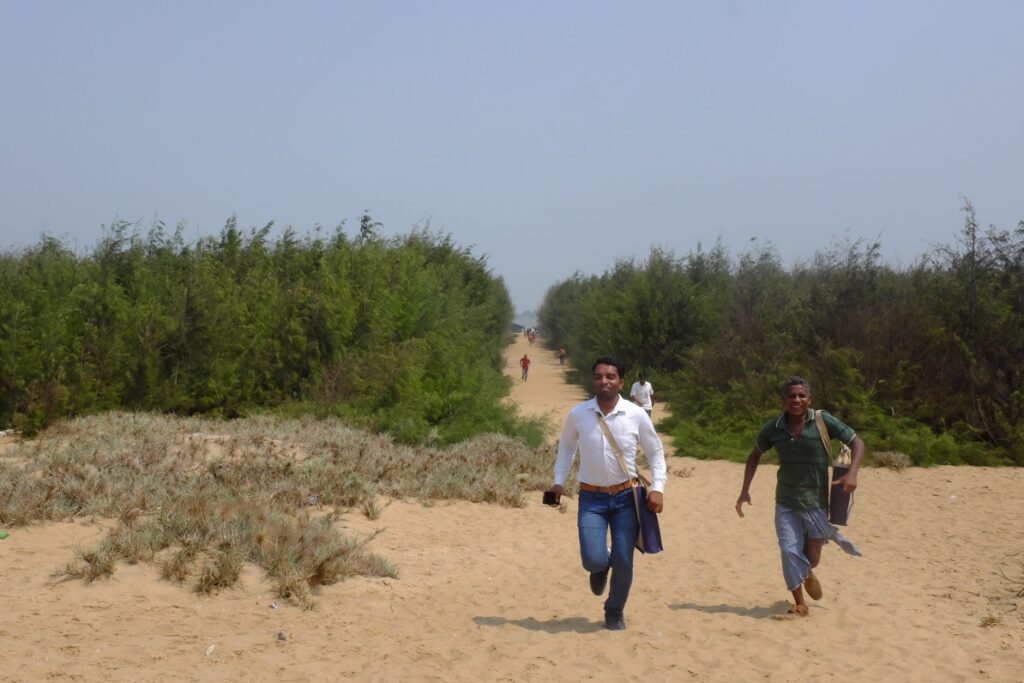
On the 28th of April the RCDC team took all the participants for a field trip to Parbatipur village in Krushnaprasad Block of Puri District. We travelled by boat and made a short stop over to explore one of the sea mouth’s that connects Chilika to the Bay of Bengal. Several of the participants come from land locked parts of India and this was the first time they were seeing the ocean and their excitement knew no bounds. The villagers of Parbatipur provide our team with a grand welcome.
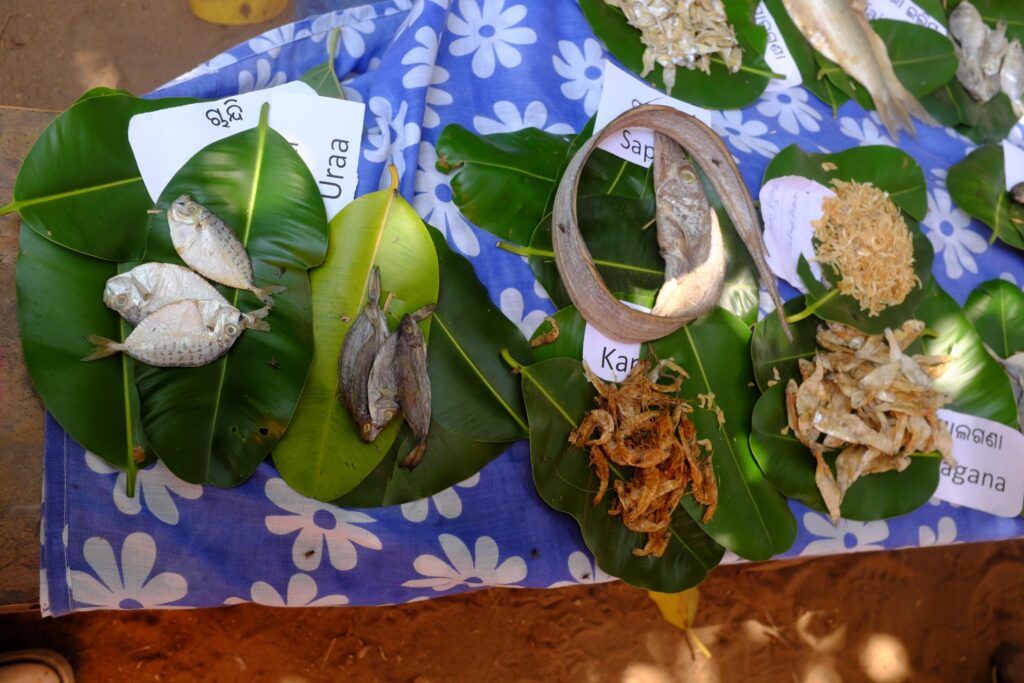
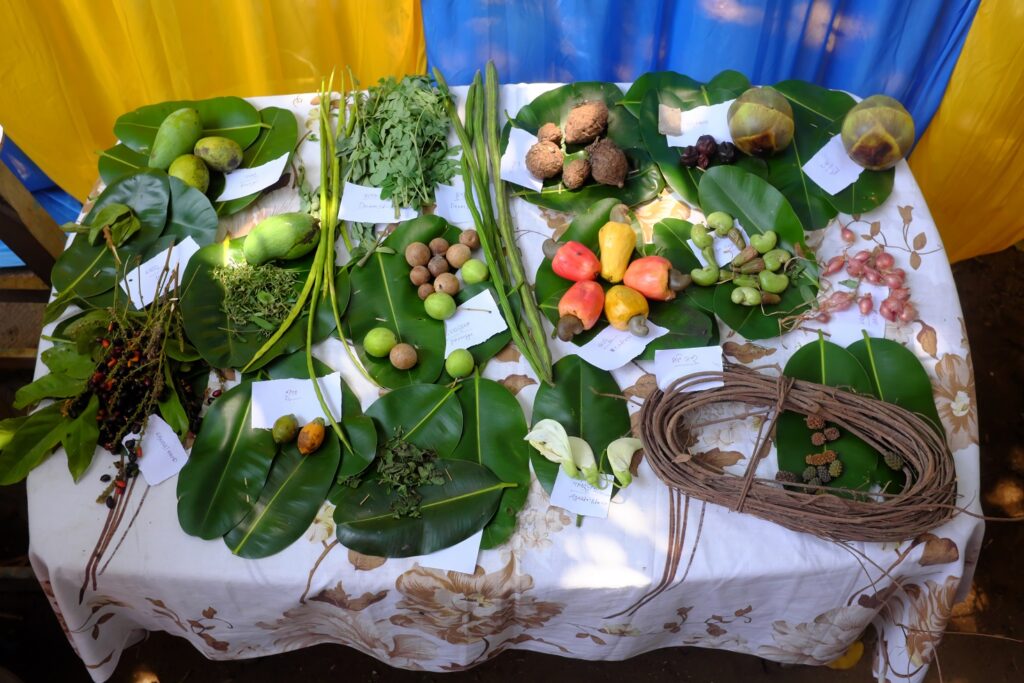
They had set up an exhibit of local varieties of fish, crabs, prawns and other aquatic species; plant based cultivated and uncultivated produce as well as local traps and tools used for fishing. Representatives from the village and RCDC informed us about the various challenges being faced by them largely due to Climate Change and the degradation of Chilika because of the intensification of resource use and the resultant pollution and other negative impacts. They also provided insights into the work local institutions like Gopinath Yuva Sangathan and Purbanchal Maschajibi Maha Sanga along with RCDC to secure local livelihoods, promote biodiversity, protect, safeguard, and conserve the diverse and fragile ecosystems of Chilika.
The program ended with a vote of thanks to all those who contributed to the successful conducting of the meeting and a sharing of feedback from participants from different areas. Binod Sabar, from Bandwan Block of Purulia District, shared that they do not have much crop diversity in his area and this meeting enabled him to see and learn about a rich diversity of seeds being cultivated by communities in other parts of India.

